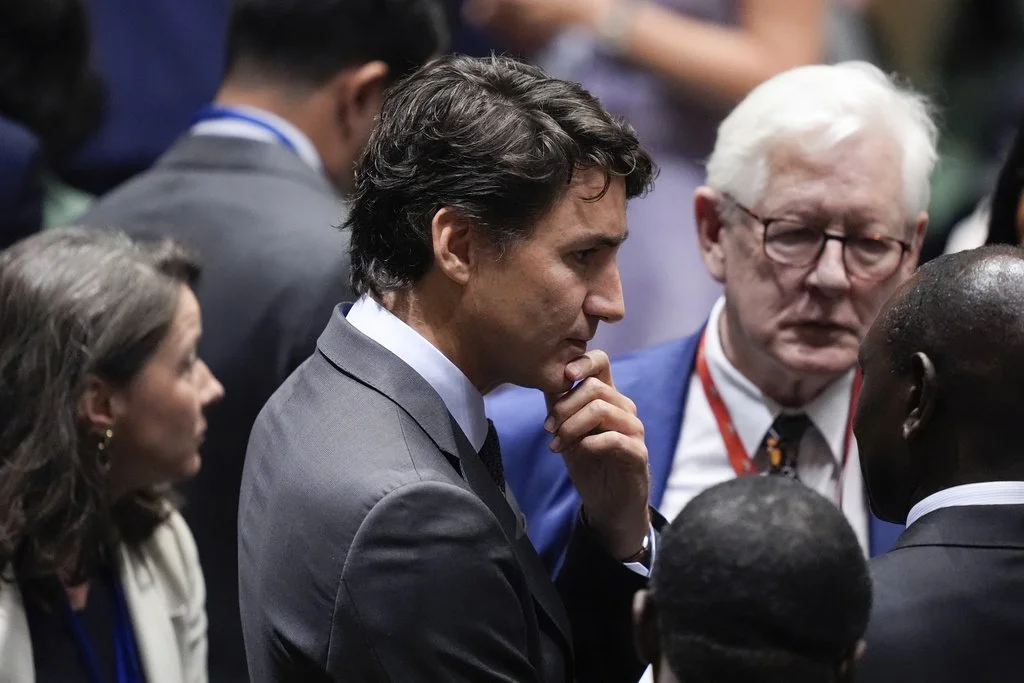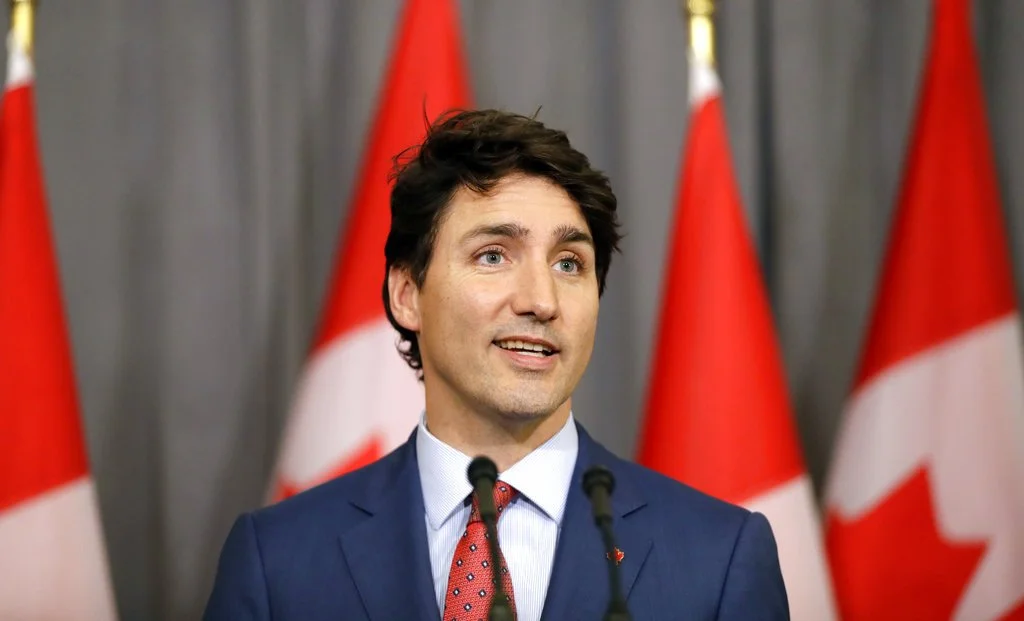Canadian Prime Minister Justin Trudeau Addresses Growing Frustrations with His Leadership
Canada's Prime Minister Justin Trudeau greets people during the 79th session of the United Nations General Assembly at the UN headquarters on Tuesday, Sept. 24, 2024. AP Photo/Julia Demaree Nikhinson
Canadian Prime Minister Justin Trudeau appeared on “The Late Show with Stephen Colbert” during his trip to New York City for the United Nations General Assembly. Following a brief discussion about what differentiates Canada from the United States, host Stephen Colbert questioned Trudeau about growing dissent over his leadership.
The prime minister confessed that he understood people’s frustrations and why they had primarily placed the blame on him. He currently has a 28 percent approval rating, a stark contrast to the 68 percent he had when he first took office in 2015. This disapproval stems from the rising costs of living, a housing shortage, and increased immigration. He seemingly addressed calls for him to step down as party leader by acknowledging that “people are sometimes looking at change.”
This talk of change comes days after the Liberal Party, with which Trudeau is affiliated, lost a seat it had once firmly held, on Sept. 16 during a by-election. The LaSalle—Émard—Verdun federal by-election was won by Louis-Philippe Sauvé of the Bloc Québécois party.
The prime minister was noticeably absent from the campaign to fill the seat, likely due to concerns that his unpopularity would sully their chances. Trudeau’s Liberal Party had already been running a minority government after it failed to maintain a coalition deal with the New Democratic Party (NDP), whose party’s leader, Jagmeet Singh, criticized the Liberals for being “too weak” and “too selfish” to govern.
The next federal election is set for October 2025. Pierre Poilievre, leader of the Conservative Party, has stated that he will put forward a vote of no confidence. Fortunately for Trudeau, Poilievre likely lacks the votes, as the NDP and Bloc Québécois have said they will not support it.
Trudeau speaks during a press conference at The Canadian High Commission to take part in the Commonwealth Heads of Government Meeting in London on Thursday, April 19, 2018. AP Photo/Kirsty Wigglesworth
However, this remains a worrying sign for the prime minister as the Conservatives plan to file two motions of no confidence, citing comments from NDP Leader Jagmeet Singh and Bloc Québécois Leader Yves-François Blanchet that criticize the Liberal government. If these motions succeed, the election could take place sooner than planned.
Poilievre and his Conservatives currently lead in the polls, positioning him to become Canada’s next prime minister. Polling suggests his party could win at least 200 seats, well over the majority threshold. Poilievre is polling at 42 percent, while Trudeau trails behind at just 24 percent.
Poilievre is a divisive figure. He has disparaged COVID-19 lockdown restrictions and frequently criticizes the media. Such comments have made some compare him to former US President Donald Trump. However, Poilievre’s past actions do not suggest he will govern like Trump. He is pro-immigration and understands the importance of maintaining relationships with Canada’s allies. In an attempt to engage the American audience, Trudeau even addressed the comparisons between his opponent and the former US president on Colbert’s show.
Following US President Joe Biden’s decision not to seek re-election due to a similar bout of unpopularity, calls for Trudeau to step down have grown louder as the possibility becomes more realistic. However, Trudeau remains confident that he is the best choice for Canada, telling Colbert that he is “going to keep fighting.”


